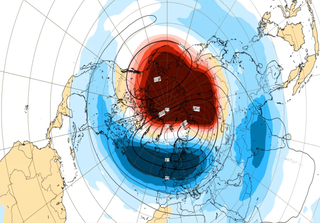New data alters key ideas about the history of Earth's climate
A new study could resolve a long-standing scientific debate and completely change the way we think about the evolution of Earth's climate. Find out more here!

This investigation demystifies the idea that the Earth's surface (terrestrial and sea) has recorded very high temperatures in the last two billion years. Instead, it shows that the Earth has had a relatively stable and mild climate.
Temperature is an important control of the chemical reactions that govern life and our environment. This new study may have significant implications for scientists working on climate models or issues related to biological and climate evolution.
"Knowledge of temperatures in the past can help us to understand the functioning of the Earth's climate system and to understand the conditions that allowed the origin and evolution of life".
Dr. Terry Isson, geochemist at Waikato University and lead author of the study.
Understanding past temperatures and the evolution of life is not an exercise in history or pure intellectual curiosity. Research into the climate of the past is important for researchers who seek to understand the current climate and future scenarios in the long term.
In this work, Dr. Isson and PhD student Sofia Rauzi adopted new methods, in order to clarify the history of the Earth's surface temperature.

They used five unique data records derived from different types of rock, including shale, iron oxide, carbonate, silica and phosphate. Collectively, these "geochemical" records comprise more than 30,000 data points covering the history of several billion years of the Earth.
To date, this study is the most exhaustive compilation and interpretation of one of the oldest geochemical records - oxygen isotopes. Oxygen isotopes are different forms of the oxygen element. It is also the first study to use the five existing records to draw a consistent "map" of temperature over a huge part of geological time.
This study obtained very different results from previous studies
This study refutes the idea that primitive oceans were hot, with temperatures above 60 °C before about 500 million years ago, before the appearance of terrestrial animals and plants.
The new data indicate that the primitive oceans were relatively stable and temperate and that temperatures were around 10 °C, which changes current ideas about the environment in which complex life evolved.
This work produces the first record ever of the evolution of the abundance of terrestrial and marine clay throughout the history of the Earth. This is the first direct proof of an intimate link between the evolution of plants, the marine creatures that make skeletons and silica shells (silicone life forms), the formation of clay and the global climate.
"The results suggest that the process of clay formation may have played a fundamental role in the regulation of the climate on the primitive Earth and in the maintenance of the temperate conditions that allowed the evolution and proliferation of life on Earth".
Dr. Terry Isson.
In general, this research provides new evidence of the Earth's climate and geochemical history, which need to be better understood to inform and update current ideas and research on climate and evolution.
News reference:
Isson T., Rauzi S. Oxygen isotope ensemble reveals Earth's seawater, temperature, and carbon cycle history. Science (2024).








